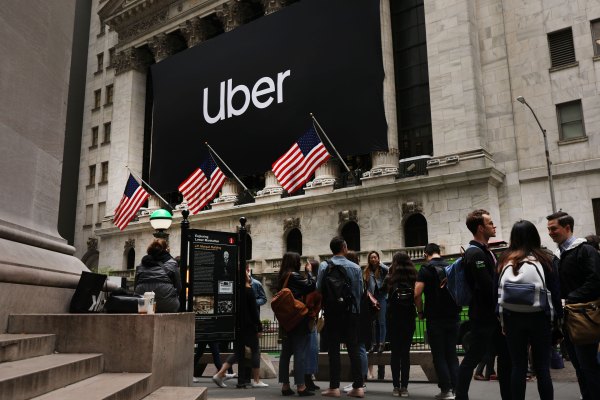Uber (NYSE: UBER) closed up 5% Wednesday at $45 per share, trading for the first time since its May 10 debut at its initial public offering price.
The boost comes one day after the quiet period for the dozens of investment banks that underwrote Uber’s IPO came to an end. Which is to say, Uber’s stock price is trading up now that several buy ratings and positive analyst reports were released this week.
Uber raised $8.1 billion in its early May float, achieving an initial market cap of roughly $70 billion. Uber’s IPO was deemed a failure by many, after its share price failed to pop on its first day of trading, opening at a meager $42 apiece. Uber was previously valued at $72 billion by venture capitalists after raising billions of dollars in a 10-year period.
In the last four weeks, Uber’s stock price has remained relatively stable, however, hovering between $40 and $43 per share.
In his first analyst note on the company, Raymond James analyst Justin Patterson wrote that Uber would be a leader in the “offline era,” and gave it a $50 price target.
“In contrast to traditional Internet companies, Uber is a digital app powering offline behavior,” Patterson said, per CNBC. “This elevates cost in the early years, but arguably creates a more defensible long-term position.”
Uber, additionally, released its first-ever earnings report last week, disclosing losses of $1 billion in the first quarter of 2019 on revenue of $3.1 billion. The numbers came in as expected, with analysts anticipating an adjusted net loss per share of 76 cents on earnings of about $3.1 billion.
“Earlier this month we took the important step of becoming a public company, and we are now focused on executing our strategy to become a one-stop shop for local transportation and commerce,” Uber chief Dara Khosrowshahi said in a statement regarding the company’s earnings. “In the first quarter, engagement across our platform was higher than ever, with an average of 17 million trips per day and an annualized gross bookings run-rate of $59 billion.”
